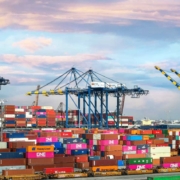The logistics manager as a conductor.
Now that the question about the future of the supply chain is on the table, it is inevitable to also question the position and function of the logistics manager.
The practical technician.
This actually applies to most logistics managers. They are used to standing in the mud with the boots. Come up with high-quality solutions for their warehouse, distribution or internal supply chain optimization. But the future of supply chains requires a different logistics manager.
Future supply chain.
The diversity of channels will be a major challenge for any organization. More than ever, the barriers within the channels but also within the organization will be broken down and overcome. The importance of Sales & Operations planning, functioning optimally in supply chain towers, requires nothing less than breaking down the proverbial walls in the organization.
For many logistics managers, who like to be practical and hands-on, a barrier in itself. It requires a strategy, internal networking, smart chess on the board in the boardroom. It is not the technical innovations that are decisive, but the ability of logistics managers to play a primary strategic role on an ongoing basis. Production is no longer leading, but the omni chain. And although this principle has been endorsed for years, in daily practice the logistics manager often has to cope with production or sales interests.
The conductor
Not the know-how of the logistics manager is of primary importance, but his leadership qualities to propagate the importance of an integrated omni chain in the organization at the highest level. At multiple levels, the logistics manager must be able to work together and make connections. Providing communication and insight into the omni chain, the necessity and benefits are paramount.
This also means that the manager’s leadership towards his employees will change. Team diversity, personal responsibility and increasing the decision-making capacity of employees will increase the quality and self-steering capacity. A necessary development because the speed and complexity of the omni chain means that the logistics manager will no longer be able to take the helm himself.
The logistics manager must claim a central role at the heart of the organization. Demonstrating his vision and initiating new business models that take global developments into account, but give scope to local customization. Are you ready?









